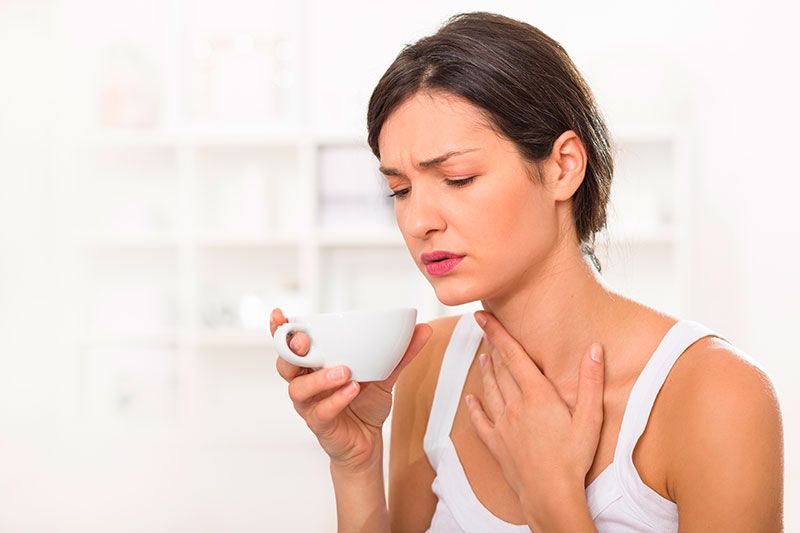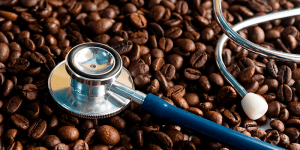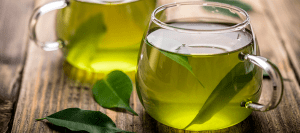Café, té y cáncer oral/faringe terminal en un amplio estudio prospectivo de cohorte en los Estados Unidos
28-04-2017
Numerosos estudios sugieren que existe una asociación entre el consumo de café y una disminución del riesgo de padecer cáncer oral o faríngeo. En esta investigación, los autores exploraron la asociación entre el consumo de café cafeinado, descafeinado y té en relación a la mortalidad por cáncer oral o faríngeo. Se desarrolla en el marco del “Cancer Prevention Study II”, un estudio estadounidense de cohorte que comenzó en 1982, realizado por la “American Cancer Society”. Alrededor de 968.432 hombres y mujeres libres de cáncer fueron incluidos en el estudio. 868 muertes relacionadas con cáncer oral o faríngeo fueron identificadas durante los 26 años de seguimiento. Se empleó la regresión Cox de riesgos proporcionales para estimar el riesgo relativo ajustándolo con variables potencialmente confusoras. Se observó que el consumo de más de 4 tasas al día de café cafeinado estuvo asociado con una reducción del 49 % del riesgo de morir por cáncer oral o faríngeo, en comparación con no consumo o consumo ocasional de café cafeinado (riesgo relativo = 0.51, intervalo de confianza 95%: 0.40-0.64) (1 tasa/día= 237 ml). Un declive dosis dependiente en el riesgo relativo fue observado con cada tasa/día consumida (Tendencia menor a 0.001). La asociación no fue modificada por sexo, tabaquismo o uso de alcohol. Una asociación inversa no significativa fue observada para más de 2 tasas /día de consumo de café descafeinado (riesgo relativo= 0.61, intervalo de confianza al 95%: 0.37 – 1.01). Ninguna asociación fue identificada para el consumo de té. Se concluye que en este gran estudio prospectivo, el consumo de café cafeinado estuvo relacionado inversamente con la mortalidad por cáncer oral o faríngeo. Un mayor número de investigaciones son necesarias para dilucidar los mecanismos biológicos por los cuales el café contribuiría a proteger de estos cánceres letales frecuentes.
Hildebrand JS, Patel AV, McCullough ML, Gaudet MM, Chen AY, Hayes RB, Gapstur SM. Coffee, tea, and fatal oral/pharyngeal cancer in a large prospective US cohort. Am J Epidemiol. 2013 Jan 1;177(1):50-8.
1. American Cancer Society. Cancer Facts & Figures 2012. Atlanta, GA: American Cancer Society; 2012.
2. Silverman S, ed. Oral Cancer. 5th ed. Atlanta, GA: American Cancer Society; 2003.
3. D’Souza G, Kreimer AR, Viscidi R, et al. Case-control study of human papillomavirus and oropharyngeal cancer. N Engl J Med. 2007;356(19):1944–1956.
4. Wiseman M. The second World Cancer Research Fund/ American Institute for Cancer Research expert report. Food, nutrition, physical activity, and the prevention of cancer: a global perspective. Proc Nutr Soc. 2008;67(3):253–256.
5. Nkondjock A. Coffee consumption and the risk of cancer: an overview. Cancer Lett. 2009;277(2):121–125.
6. Scalbert A, Andres-Lacueva C, Arita M, et al. Databases on food phytochemicals and their health-promoting effects. J Agric Food Chem. 2011;59(9):4331–4348.
7. Naganuma T, Kuriyama S, Kakizaki M, et al. Coffee consumption and the risk of oral, pharyngeal, and esophageal cancers in Japan: the Miyagi Cohort Study. Am J Epidemiol. 2008;168(12):1425–1432.
8. Heck JE, Sapkota A, Vendhan G, et al. Dietary risk factors for hypopharyngeal cancer in India. Cancer Causes Control. 2008;19(10):1329–1337.
9. Rodriguez T, Altieri A, Chatenoud L, et al. Risk factors for oral and pharyngeal cancer in young adults. Oral Oncol. 2004;40(2):207–213.
10. Tavani A, Bertuzzi M, Talamini R, et al. Coffee and tea intake and risk of oral, pharyngeal and esophageal cancer. Oral Oncol. 2003;39(7):695–700.
11. Takezaki T, Hirose K, Inoue M, et al. Tobacco, alcohol and dietary factors associated with the risk of oral cancer among Japanese. Jpn J Cancer Res. 1996;87(6):555–562.
12. Pintos J, Franco EL, Oliveira BV, et al. Mate, coffee, and tea consumption and risk of cancers of the upper aerodigestive tract in southern Brazil. Epidemiology. 1994; 5(6):583–590.
13. Mashberg A, Boffetta P, Winkelman R, et al. Tobacco smoking, alcohol drinking, and cancer of the oral cavity and oropharynx among U.S. veterans. Cancer. 1993;72(4):1369–1375.
14. Franceschi S, Barra S, La Vecchia C, et al. Risk factors for cancer of the tongue and the mouth. A case-control study from northern Italy. Cancer. 1992;70(9):2227–2233.
15. La Vecchia C, Ferraroni M, Negri E, et al. Coffee consumption and digestive tract cancers. Cancer Res. 1989; 49(4):1049–1051.
16. Biazevic MG, Toporcov TN, Antunes JL, et al. Cumulative coffee consumption and reduced risk of oral and oropharyngeal cancer. Nutr Cancer. 2011;63(3):350–356.
17. Galeone C, Tavani A, Pelucchi C, et al. Coffee and tea intake and risk of head and neck cancer: pooled analysis in the International Head and Neck Cancer Epidemiology Consortium. Cancer Epidemiol Biomarkers Prev. 2010;19(7):1723–1736.
18. Turati F, Galeone C, La Vecchia C, et al. Coffee and cancers of the upper digestive and respiratory tracts: meta-analyses of observational studies. Ann Oncol. 2011;22(3):536–544.
19. Bundgaard T, Wildt J, Frydenberg M, et al. Case-control study of squamous cell cancer of the oral cavity in Denmark. Cancer Causes Control. 1995;6(1):57–67.
20. Ren JS, Freedman ND, Kamangar F, et al. Tea, coffee, carbonated soft drinks and upper gastrointestinal tract cancer risk in a large United States prospective cohort study. Eur J Cancer. 2010;46(10):1873–1881.
21. Stellman SD, Garfinkel L. Smoking habits and tar levels in a new American Cancer Society prospective study of 1.2 million men and women. J Natl Cancer Inst. 1986;76(6):1057–1063.
22. Calle EE, Terrell DD. Utility of the National Death Index for ascertainment of mortality among Cancer Prevention Study II participants. Am J Epidemiol. 1993; 137(2):235–241.
23. Kleinbaum DG, Klein M. Survival Analysis: A Self-Learning Text. 2nd ed. New York, NY: Springer Science+Business Media, Inc; 2005.
24. Rothman KJ, Greenland S, eds. Modern Epidemiology. 2nd ed. Philadelphia, PA: Lippincott-Raven Publishers; 1998.
25. Ferraroni M, Tavani A, Decarli A, et al. Reproducibility and validity of coffee and tea consumption in Italy. Eur J Clin Nutr. 2004;58(4):674–680.
26. Jacobsen BK, Bonaa KH. The reproducibility of dietary data from a self-administered questionnaire. The Tromso Study. Int J Epidemiol. 1990;19(2):349–353.
27. Munger RG, Folsom AR, Kushi LH, et al. Dietary assessment of older Iowa women with a food frequency questionnaire: nutrient intake, reproducibility, and comparison with 24-hour dietary recall interviews. Am J Epidemiol. 1992;136(2):192–200.
28. Bakuradze T, Lang R, Hofmann T, et al. Antioxidant effectiveness of coffee extracts and selected constituents in cell-free systems and human colon cell lines. Mol Nutr Food Res. 2010;54(12):1734–1743.
29. Beaudoin MS, Graham TE. Methylxanthines and human health: epidemiological and experimental evidence. Handb Exp Pharmacol. 2011;200:509–548. (doi:10.1007/ 978-3-642-13443-2_21).
30. Choi MJ, Park EJ, Oh JH, et al. Cafestol, a coffee-specific diterpene, induces apoptosis in renal carcinoma Caki cells through down-regulation of anti-apoptotic proteins and Akt phosphorylation. Chem Biol Interact. 2011;190(2-3):102–108.
31. Higgins LG, Cavin C, Itoh K, et al. Induction of cancer chemopreventive enzymes by coffee is mediated by transcription factor Nrf2. Evidence that the coffee-specific diterpenes cafestol and kahweol confer protection against acrolein. Toxicol Appl Pharmacol. 2008;226(3):328–337.
32. Kim HG, Hwang YP, Jeong HG. Kahweol blocks STAT3 phosphorylation and induces apoptosis in human lung adenocarcinoma A549 cells. Toxicol Lett. 2009;187(1): 28–34.
33. Oh JH, Lee JT, Yang ES, et al. The coffee diterpene kahweol induces apoptosis in human leukemia U937 cells through down-regulation of Akt phosphorylation and activation of JNK. Apoptosis. 2009;14(11):1378–1386.
34. Rajendra Prasad N, Karthikeyan A, Karthikeyan S, et al. Inhibitory effect of caffeic acid on cancer cell proliferation by oxidative mechanism in human HT-1080 fibrosarcoma cell line. Mol Cell Biochem. 2011;349(1-2):11–19.
35. Tai J, Cheung S, Chan E, et al. Antiproliferation effect of commercially brewed coffees on human ovarian cancer cells in vitro. Nutr Cancer. 2010;62(8):1044–1057.36. Um HJ, Oh JH, Kim YN, et al. The coffee diterpene kahweol sensitizes TRAIL-induced apoptosis in renal carcinoma Caki cells through down-regulation of Bcl-2 and c-FLIP. Chem Biol Interact. 2010;186(1):36–42.
37. Bravi F, Bosetti C, Tavani A, et al. Coffee drinking and hepatocellular carcinoma risk: a meta-analysis. Hepatology. 2007;46(2):430–435.
38. Bravi F, Scotti L, Bosetti C, et al. Coffee drinking and endometrial cancer risk: a metaanalysis of observational studies. Am J Obstet Gynecol. 2009;200(2):130–135.
39. Galeone C, Turati F, La Vecchia C, et al. Coffee consumption and risk of colorectal cancer: a meta-analysis of case-control studies. Cancer Causes Control. 2010;21(11):1949–1959.
40. Je Y, LiuW, Giovannucci E. Coffee consumption and risk of colorectal cancer: a systematic review and meta-analysis of prospective cohort studies. Int J Cancer. 2009;124(7):1662–1668.
41. Zhang X, Albanes D, Beeson WL, et al. Risk of colon cancer and coffee, tea, and sugar-sweetened soft drink intake: pooled analysis of prospective cohort studies. J Natl Cancer Inst. 2010;102(11):771–783.















